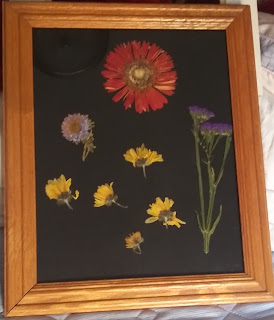By Eurielle
Written on January 28, 2022
Please do not copy or post to another site. Thank you. Enjoy reading.
I think one of the reasons why I fell in love with Public Health was my professors in that they were so much against racism and discrimination because their work opened their eyes to what health disparities could do to certain groups of people, especially those of people of color.
One of the first health science classes I took when I changed major was Problem Solving for Health Sciences. It was the most basic class I could take in my roadmap, but it was the only one I have A- on (in the meantime. Hopefully). My professor for that class was Asian-American, and she faced discrimination while doing her work. She once told us a story wherein she went to a convention of some sorts if I remembered correctly, and another person kept telling her that she "had an accent" in an offensive, stating-the-obvious kind of way. Well, my professor sounded very annoyed/irritated when she was talking about the scenario, so I assumed it was said in a discriminatory way. She took it as a racist remark.
It occurred to me that it happened to me as well a long time ago. I just didn't make a connection because at that time, and even when she was telling us the story, I thought that the other people were only making observations and they were telling me. However, I did remember feeling offended back then.
It happened in high school around freshman year. I was probably only more than a year in the United States after I migrated from the Philippines. I remembered several classmates of mine, I could call them acquaintances or peers by this time since I had them in several classes, kept on telling me I had a strong accent. It made me feel small like I didn't belong. At that time, I couldn't make a comeback. I kept on denying that I do have an accent. "No, no, I don't have one." I was a child. 14 years old? I didn't even know how to defend myself, let alone be proud of my accent and my English.
Filipino children were very lucky to learn English in school from a young age. We learned and retained it even if the usage, especially those who live back in the province, weren't used as much. There were even Filipino people who didn't have a formal education of the English language but understood and spoke the language in a relatively well and understandable manner. So what if they had a "weird" (to the foreigners; or locals, in my case) accent? At least they could communicate with foreigners, and communication was always the key to a good conversation.
So going back to my story, I wish my 14-year-old self could've answered back "You do, too" in a chill manner because that was the truth. The United States of America was such a huge country that every region had its own accent when speaking English. Some people who were born and raised in this country didn't realize how our accents were different from one coast to another and used it as leverage to become prejudiced people who discriminate against others. Maybe everyone should learn to get up and see the world (literally).
I guessed I like for those who read my articles to take this piece and use it as a tool of learning. Since then, I've only met cool and amazing people. I didn't even become close with these people later on - I guessed that's another lesson. Let go of those who made you feel bad about yourself.














